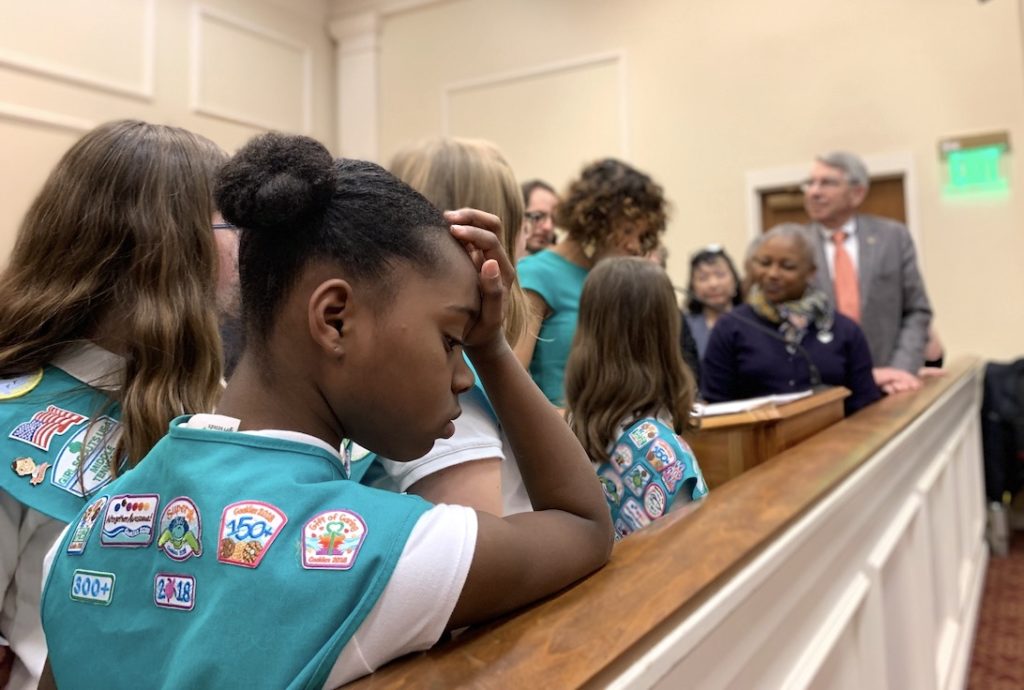
The first black leader of a Girl Scout troop in Middle Tennessee is being honored with a historic marker, thanks to the efforts of a group of Girl Scout Juniors who wanted the city of Nashville to know her legacy.
Josephine Holloway was a Fisk University graduate who was working at the Bethlehem Center in Nashville in 1923, according to the recent Metro Council resolution honoring her. She was inspired by the Girl Scout’s mission and organized her own troop, but she was discouraged from continuing to work at the center after marrying a co-worker.
A decade later, she established a troop for her daughters but was denied membership by the Girl Scouts Council. She continued for another 10 years before receiving formal recognition in the early 1940s.
“Josephine Groves Holloway lived her life with passion to improve the world around her and persevered in facing and removing racist obstacles,” Councilwoman Angie Henderson said at a Metro Council meeting last month.
Standing attentively beside her were two rows of Girl Scout Juniors, Troop 1347. They learned about Holloway when they visited Camp Holloway, a Goodlettsville facility she opened in 1955 for African American girls. Today, girls of all backgrounds take part in outdoor activities there.
Alexis Wood, a 10-year-old member of the troop, said Holloway’s story felt personal.
“She symbolizes feminism, and that how many things people put in your way or how many things they think will tear you down, you’ll always get back up,” Wood said.
The troop thought it was an injustice that Holloway wasn’t recognized on a larger scale, so they wrote a resolution for the Metro Council to recognize her, which Henderson sponsored, and add a historic marker in her honor.
“In a way, it’s a legacy not only of what this wonderful woman did, but what her legacy has provided,” troop leader Tracy Rokas said. “One of the girls in our troop wrote, ‘I wouldn’t maybe be in Girl Scouts if it weren’t for her.’ ”
The marker, which will stand at the Girl Scouts of Middle Tennessee headquarters on Granny White Pike, is part of a larger effort by the Metro Historical Commission to increase diversity in representation on historical markers.
According to the Metro Historical Commission, only 22% of markers in the city currently recognize women or minorities. Jessica Reeves, a preservationist at the commission, says a recent boost in public funding for historical markers will help them recognize more diverse history makers.
“It’s really important that we are telling the whole story of Nashville and not a small subsection of our history, but really trying to look deeper into histories that haven’t been told as much,” Reeves said.


